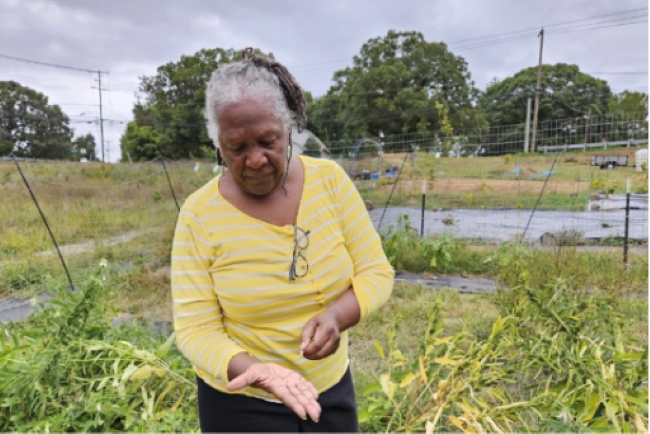
When Bonnetta Adeebs recent native fruit and berry plant sale drew crowds so large that people were standing in the middle of the road, it confirmed what the 74-year-old retired history teacher already knew: Americans are hungry to reconnect with their agricultural heritage.As founder of the Ujamaa Cooperative Farming Alliance, (UCFA) established in 2020, Adeeb has built the youngest national seed organization into an international collective.Unlike most nonprofits in the farming sector that depend on federal grants, Adeeb built Ujamaa with a sustainable business model to generate its own income stream.
Her approach reflects her philosophy that nobodys coming to rescue uswe are the heroes weve been waiting for, especially during changing administrations when agricultural progress for communities of color might face setbacks.Adeeb sees a growing trend of African Americans reconnecting with their agricultural heritage, rejecting the black thumb myth by embracing what she calls their ancestral legacy of growing food.In this interview, she shares the roots of Ujamaa and how its mission cultivates both plants and cultural memory for future generations.Where did the idea for the Ujamaa Cooperative Farming Alliance come from, and how does it connect to preserving oral histories?On March 13, 2020, they shut down the public schools.That was also our launch date.
During COVID, when we lost so many seniors, we were interviewing elders about what was culturally meaningful.They would talk about what was in their grandmothers and their ancestors gardens, what was important.What did they eat? What was medicinal? What exactly was being grown there? For about nine months, we [asked these questions] across the diaspora.
We gathered this data.This work is central to who we are and to having the authority to answer the question, What is culturally meaningful.Its all part of reclaiming a lost history, reframing our relationship with the planet and how we think about that, looking back at how our ancestors interacted with the land and as learning some of those things that were lost to us because of the conditions of our people, of migration, and movement into the cities and all the other things that impact where we are today in terms of the health of our communities.Were trying to reclaim stories and traditions and technologies that were lost and make those available so that future generations will have it easier to access that knowledge that has, in many cases, been lost to many families.Can you name a few examples of culturally meaningful crops, and why is preserving these traditions important?We did find the American plum.
Of course, the American persimmon the black walnutsCollard greens were one of the few vegetables that African-Americans were allowed to grow for themselves during the period of enslavement.We need to honor our ancestors and their knowledge by using the good things that they knew to improve our daily lives and to make sure that our grandchildren dont have to go [through] what we do in terms of the loss of that knowledge.Even if the government shuts down all the food banks, were ready for that.
How does the Alliance operate and how can people join?Were a Zoom-based organization thats why we have growers in Botswana, Kenya, Senegal, Angola, Hawaii, Haiti We are organized into working groups.Based on your interests, you join a working group We are a complete collective, one person, one vote.Everybodys equal.Can you share a success story that demonstrates the Alliances impact?Grandma Gertrudes turnip greens.
It took us four years to find Every time we thought we had it, she says, nope finally we found it, and it was being sold under another name So now its going to be Gerties Turnip Green.What does aging with attitude mean to you in this context?People who live longer, 100 years or more, live in supportive communities where theres a social life.They usually, almost always have a garden or farm, and they have natural physical activity that comes from that part.Theyre not going to the gym, theyre going out to the garden.
Theyre harvesting, theyre planting.Plants arent the only thing that benefits from sunlight, humans do too.About the Oral History Project and the UCFAThe oral history project [The Heirloom Gardens Oral History Project] has collected about 140 interviews documenting traditional food practices, healing knowledge, and agricultural wisdom, Adeeb says, which currently informs our seed catalog and workshops, though were still working on making the full collection publicly accessible.People can support our self-funded work by purchasing seeds from our catalog, attending workshops, or reading our quarterly journal Seed Culture, with all proceeds directly supporting our mission of preserving and sharing ancestral agricultural knowledge.NaBeela Washington, an emerging Black writer, holds a Masters in Creative Writing and English from Southern New Hampshire University and Bachelors in Visual Advertising from The University of Alabama at Birmingham.
She has been published in Eater, The Cincinnati Review, and others.Learn more at nabeelawashington.com.
Publisher: Senior Planet ( Read More )

